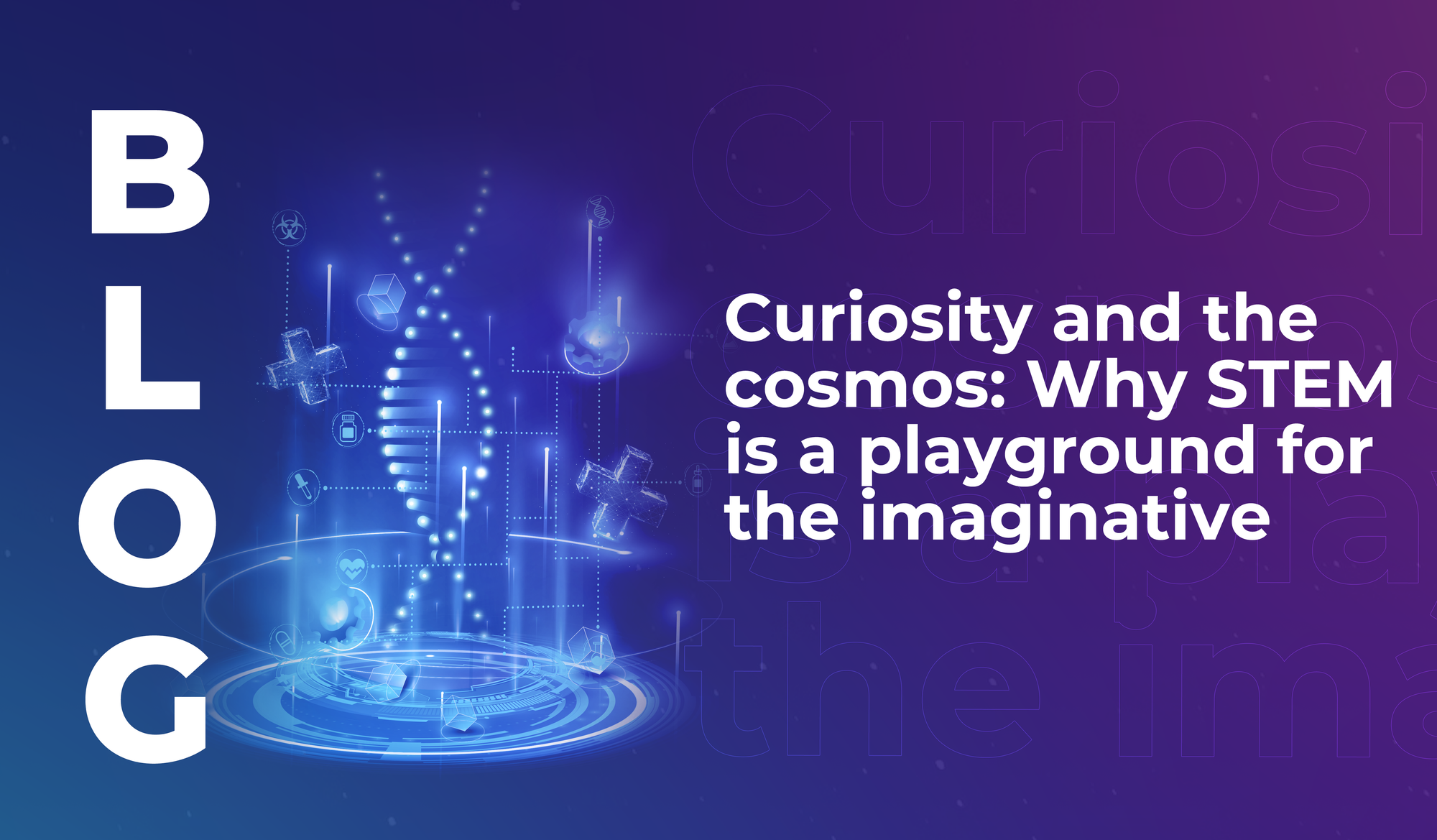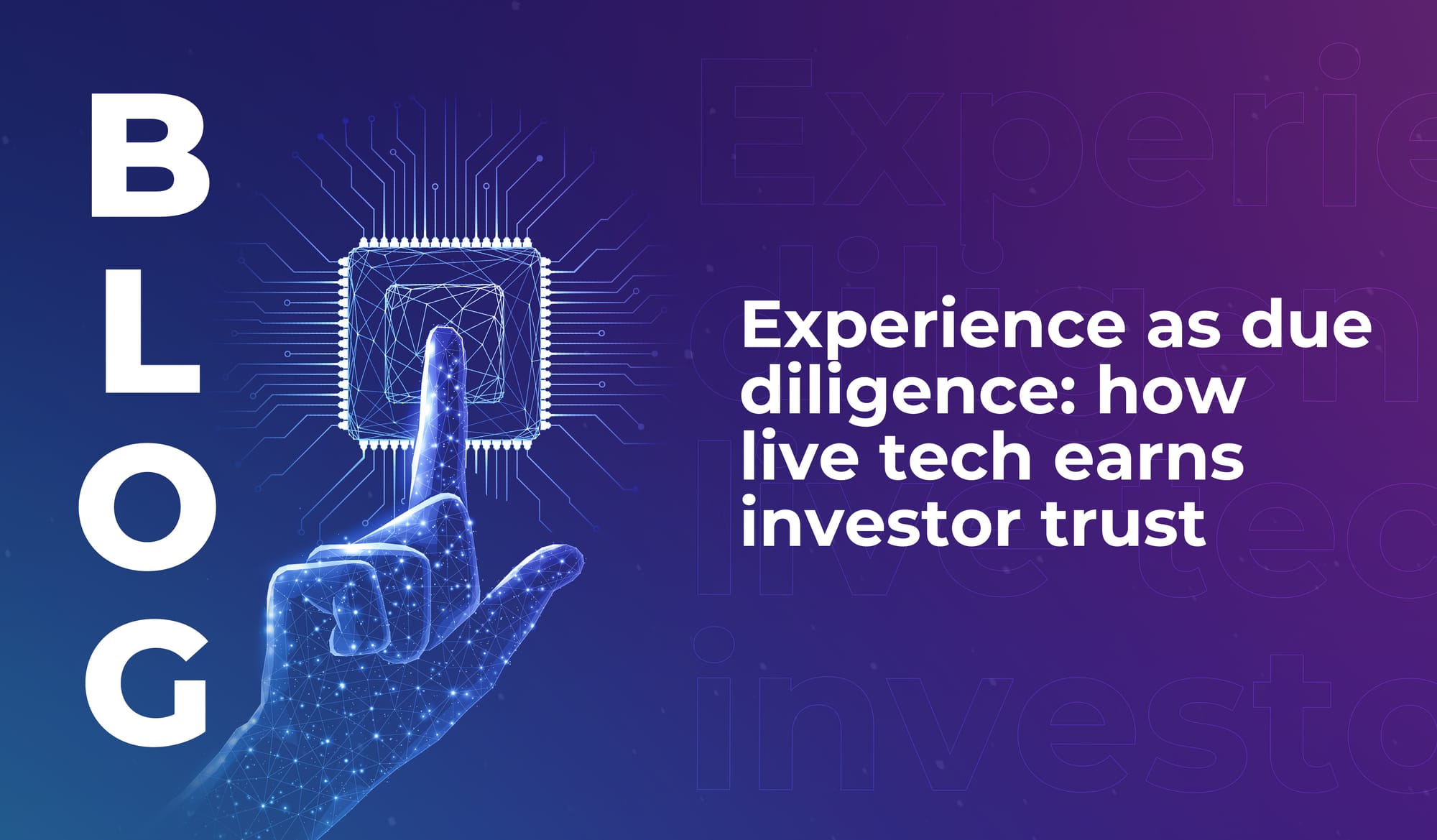
Why CoLAB works: how global brands use events to enter new markets
Learn how global brands use events to enter new markets. Build trust and accelerate relevance through CoLAB collaborations at LEAP.


Careers in STEM aren’t all lab coats and equations. Today’s STEM professionals are designing algorithms to decode whale songs, searching the skies for signs of extraterrestrial life, and applying AI to explore other planets. It’s not just about logic and numbers – it’s about creativity, curiosity, and asking the big questions.
No one embodies that spirit better than Bill Diamond (President and CEO at the SETI Institute).
We caught up with him last year to explore the purpose behind SETI – a global research organisation dedicated to the search for life beyond Earth.
SETI’s mission? In Diamond’s words, “to explore, understand, and explain life in the universe.”
Which, let’s be honest, is possibly the most exciting job brief ever.
But working in STEM isn’t just about finding answers. In fact, it’s the opposite.
“Science is not about providing answers, but rather, it’s about asking questions – and asking the right questions! And…each new answer we obtain simply raises ten new questions,” said Diamond.
That insatiable curiosity is exactly what drives innovation in STEM fields. You might be trying to understand how life began, or what lies beyond our solar system, or how other species communicate; there’s no limit to the types of questions STEM professionals can explore. And every answer brings a whole new set of unknowns.
Take SETI’s COSMIC project, for example – a cutting-edge initiative using one of the most powerful radio telescope arrays on Earth, the Very Large Array (VLA) in New Mexico. The team is collecting mind-boggling amounts of data (up to 3 terabytes per second) to listen for potential signals from intelligent life beyond our planet.
“COSMIC is a so-called ‘commensal’ observation program where we collect the entire field of view of the VLA radio telescope wherever they are pointing it for their primary science,” Diamond explained. “We are definitely excited by what we may discover with these searches.”
And it doesn’t stop at the stars. SETI researchers are also diving deep into Earth’s oceans to study how humpback whales communicate. Because scientists think that understanding the mathematical rules of animal communication could help us recognise alien languages one day.
“By applying Information Theory to these whale communications, the research teams hope to determine if there are universal rules that apply to information transfer – including those of alien civilisations.”
STEM reaches across disciplines, invites imagination, and dares people to explore what it means to be human (or not). That blend of analytical thinking and boundary-pushing creativity makes STEM careers uniquely exciting.
It also helps explain why humans continue to create increasingly intelligent technologies. Diamond put it like this: “It is human nature to constantly strive to invent and develop improved and enhanced tools and capabilities. It is part of our DNA to be curious, but I think also to invent.”
From stone tools to AI, humans have always been tinkerers and trailblazers. And today, the canvas for invention is bigger than ever – from deep sea to deep space.
At LEAP, we want everyone to recognise the incredible diversity and opportunity that lies beyond STEM education. It’s not just for people who are drawn to technical details; it’s for people who are drawn to stories and wonder, and to the possibility of understanding our place in the universe more clearly.
STEM offers the chance to feed your curiosity, to contribute to work that expands human understanding, and to spend your days doing something that genuinely excites you. If you follow your curiosity you might just find your dream career.

Learn how global brands use events to enter new markets. Build trust and accelerate relevance through CoLAB collaborations at LEAP.

At global tech events, your brand isn’t competing for space – it’s competing for memory. Memory is built through participation, so the brand collaboration opportunities at LEAP are designed for it.

For investors at LEAP, experience is the first stage of due diligence – and has more impact than a pitch deck. Find out how the Tech Arena fast-tracks investor conversations.

Learn how global brands use events to enter new markets. Build trust and accelerate relevance through CoLAB collaborations at LEAP.

At global tech events, your brand isn’t competing for space – it’s competing for memory. Memory is built through participation, so the brand collaboration opportunities at LEAP are designed for it.

For investors at LEAP, experience is the first stage of due diligence – and has more impact than a pitch deck. Find out how the Tech Arena fast-tracks investor conversations.